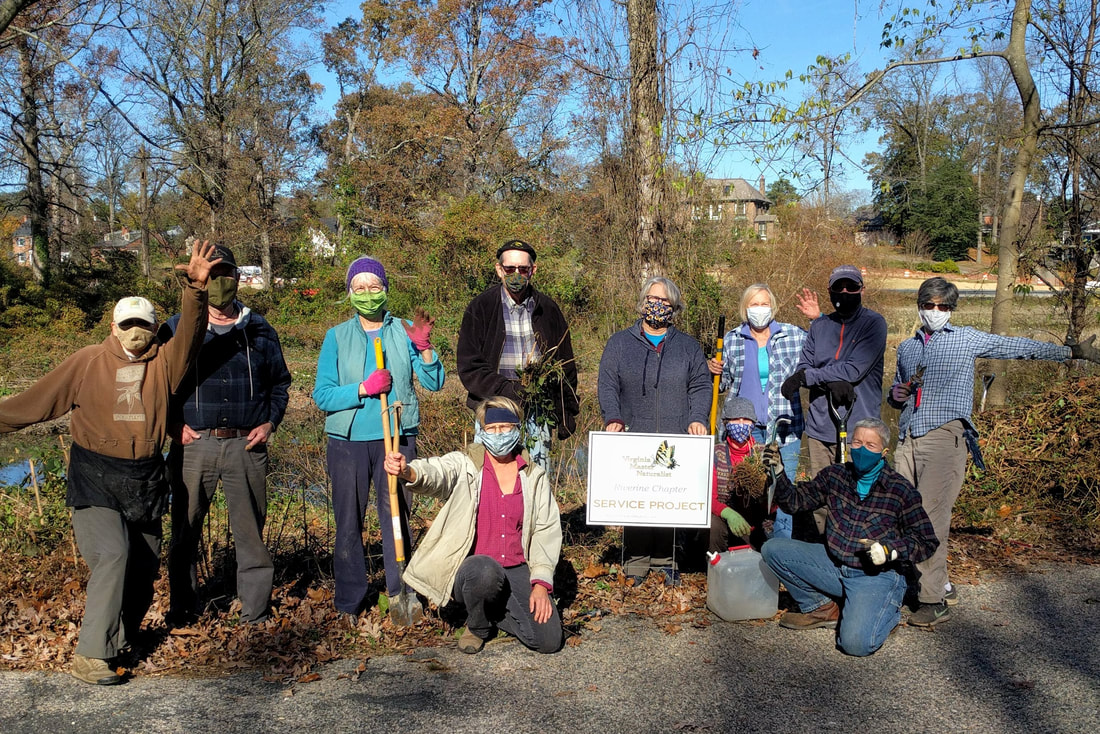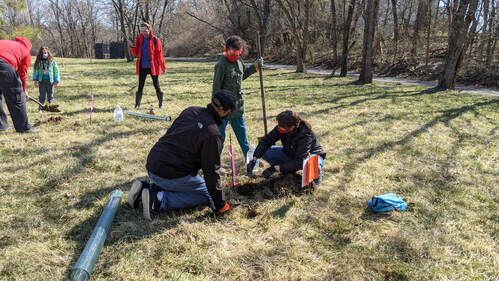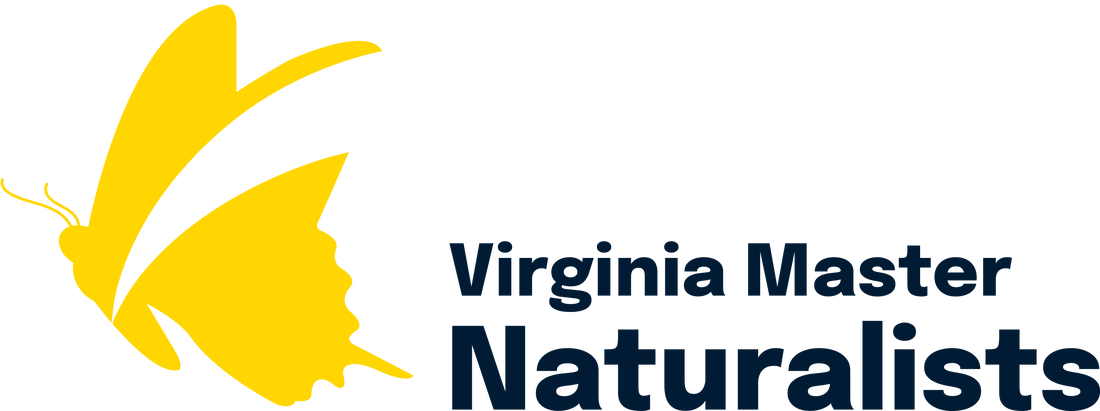
VMN volunteers in the Riverine Chapter have been improving the green infrastructure of Bryan Park in Richmond through tree plantings, native plant gardens, and invasive species management. They also regularly talk to park visitors about the importance of native plants. Photo by Jean Hollings, VMN-Riverine Chapter.
 VMN volunteers in the Banshee Reeks Chapter have recruited community members to help plant and care for trees in their neighborhoods. The community members even name the trees (Groot the Pin Oak and Treebeard the Eastern Redbud, for example)! This work is in partnership with the Audubon Naturalist Society’s Greening Your Neighborhood program. Photo by Susan Sims, VMN-Banshee Reeks Chapter.
VMN volunteers in the Banshee Reeks Chapter have recruited community members to help plant and care for trees in their neighborhoods. The community members even name the trees (Groot the Pin Oak and Treebeard the Eastern Redbud, for example)! This work is in partnership with the Audubon Naturalist Society’s Greening Your Neighborhood program. Photo by Susan Sims, VMN-Banshee Reeks Chapter. Urban forests are a critical part of Virginia's green infrastructure, especially as the state becomes increasingly urbanized each year. "As populations in cities and towns continue to grow, creating and caring for green infrastructure (like trees) is increasingly important. Trees help make cities livable – providing shade, clean air, clean water, and other useful benefits for human and environmental health" (Virginia Department of Forestry Urban and Community Forestry).
Roughly two-thirds of Virginia Master Naturalist chapters are situated in urban or suburban settings, and all of our chapters have locations with high population density within their work areas. In any given year, VMN volunteers conduct 30,000+ hours of stewardship activities, positively impacting hundreds of sites across the state. They also conduct many educational programs in their communities. When some of that service focuses on stewardship and conservation of urban forests and on educating people about the value of urban trees and forests, VMN volunteers can make a real difference for urban forest health.
The Virginia Master Naturalist program benefits from annual state-level Urban and Community Forestry grants from the USDA Forest Service, administered by the Virginia Department of Forestry's Urban and Community Forestry program. This support has helped us provide basic training curriculum on Urban and Developed Systems, have sessions related to urban trees and forests at statewide events, and provide urban forestry outreach materials. This year, we also were able to collect and compile stories of the urban and community forestry work our volunteers are doing into a StoryMap. This map allows you to view photos and descriptions of many different service projects, from invasive plant management in local parks to creating tree identification trails to monitoring for the spotted lanternfly. Take a look at the map, and hopefully get inspired by these impactful projects!
Thank you to VMN Volunteer Coordinator Terri Keffert for her work in collecting these stories, and thank you to the many VMN volunteers who shared those stories and photos! We will continue to add to this StoryMap as we learn of new projects. If you are a VMN volunteer who has worked on a project that directly relates to urban forestry, stewardship of urban forests, or education about urban forests and the value of trees in the urban environment, and you would like to see your project added to this StoryMap, please contact the VMN state office.
Roughly two-thirds of Virginia Master Naturalist chapters are situated in urban or suburban settings, and all of our chapters have locations with high population density within their work areas. In any given year, VMN volunteers conduct 30,000+ hours of stewardship activities, positively impacting hundreds of sites across the state. They also conduct many educational programs in their communities. When some of that service focuses on stewardship and conservation of urban forests and on educating people about the value of urban trees and forests, VMN volunteers can make a real difference for urban forest health.
The Virginia Master Naturalist program benefits from annual state-level Urban and Community Forestry grants from the USDA Forest Service, administered by the Virginia Department of Forestry's Urban and Community Forestry program. This support has helped us provide basic training curriculum on Urban and Developed Systems, have sessions related to urban trees and forests at statewide events, and provide urban forestry outreach materials. This year, we also were able to collect and compile stories of the urban and community forestry work our volunteers are doing into a StoryMap. This map allows you to view photos and descriptions of many different service projects, from invasive plant management in local parks to creating tree identification trails to monitoring for the spotted lanternfly. Take a look at the map, and hopefully get inspired by these impactful projects!
Thank you to VMN Volunteer Coordinator Terri Keffert for her work in collecting these stories, and thank you to the many VMN volunteers who shared those stories and photos! We will continue to add to this StoryMap as we learn of new projects. If you are a VMN volunteer who has worked on a project that directly relates to urban forestry, stewardship of urban forests, or education about urban forests and the value of trees in the urban environment, and you would like to see your project added to this StoryMap, please contact the VMN state office.


 RSS Feed
RSS Feed